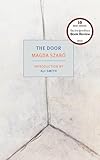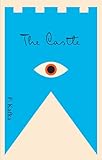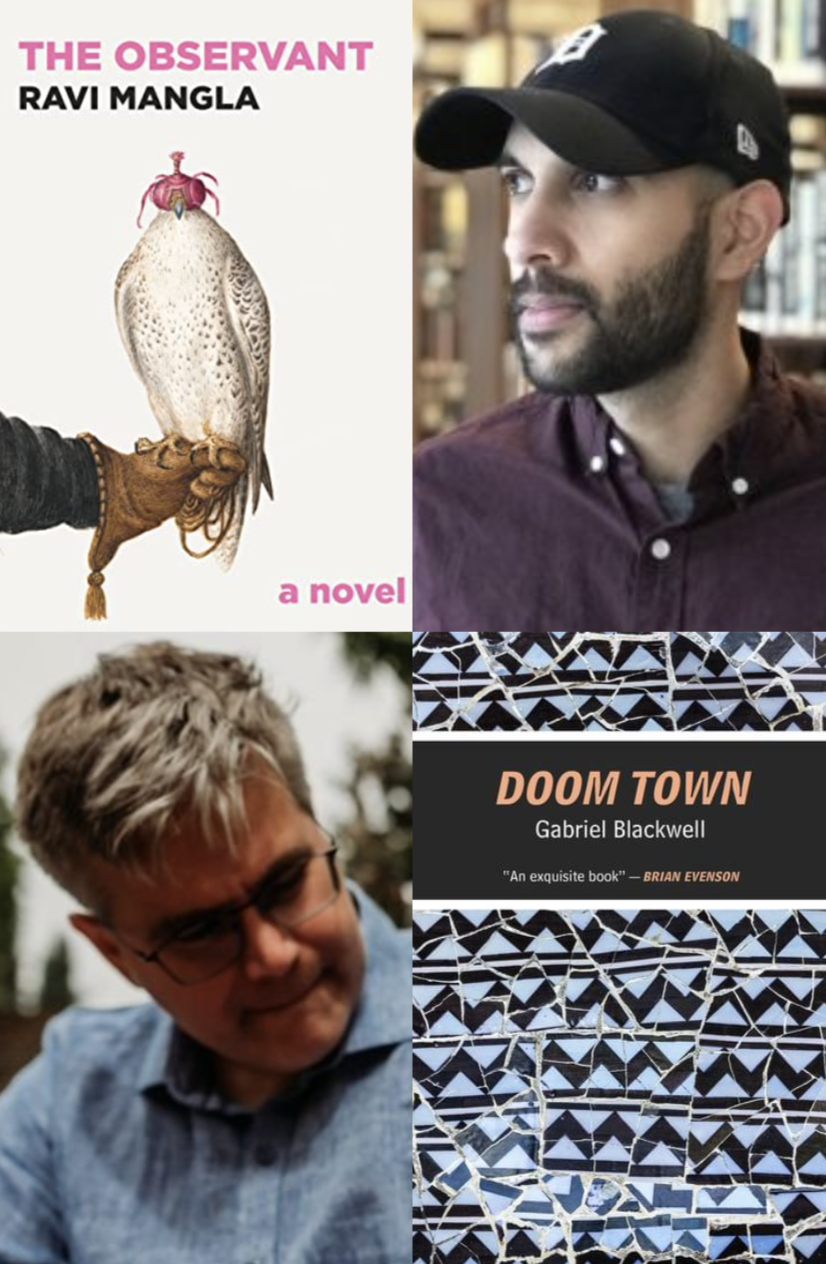
 Gabriel Blackwell and I have never met in person, but we’ve crossed paths many times in the peripheries of the internet. We published our first books around the same time, around a decade ago now, and I’ve been an avid reader of Gabe’s books ever since. His story collection Correction was one of my favorite books of 2021, and his breathtakingly brilliant Madeleine E., published in 2016, is a book I find myself returning to again and again. Gabe has been generous enough to publish several of my more eccentric stories in the journal he edits, The Rupture. And with each of us having new novels out—Doom Town and The Observant, respectively—I was interested in having a conversation about influence, creative restlessness, and how our approach to the work might have changed over the years.
Gabriel Blackwell and I have never met in person, but we’ve crossed paths many times in the peripheries of the internet. We published our first books around the same time, around a decade ago now, and I’ve been an avid reader of Gabe’s books ever since. His story collection Correction was one of my favorite books of 2021, and his breathtakingly brilliant Madeleine E., published in 2016, is a book I find myself returning to again and again. Gabe has been generous enough to publish several of my more eccentric stories in the journal he edits, The Rupture. And with each of us having new novels out—Doom Town and The Observant, respectively—I was interested in having a conversation about influence, creative restlessness, and how our approach to the work might have changed over the years.
Ravi Mangla: Doing promotion for my latest book, I’m once again struck by how often the question of influence comes up. It’s always a curious question to me, because influence feels ever-changing—or perhaps different projects tap into different influences. As someone who moves between various forms of story craft, I’m curious to get your thoughts on the mutability of influence. Do you still feel you’re in conversation with the same writers and artists or has it changed from when you started out? Are there influences you’ve shed or left behind?
Gabriel Blackwell: It is a curious question. To me, it belongs to the same category as “Where did you get the idea for your book?”—by which I mean it’s kind of baldly an acquisitive question (e.g., “Where did you get that bag?” “Where did you get that coffee?,” but not: “Where did you get that marriage?” “Where did you get those ethics?”), even as it often seems like a more circuitous way to ask: “How did you do that?” “How can I do that?” Both fair questions! But I basically never have a good answer, I think because I don’t think like that, or maybe because I don’t think about that.
To more directly address your question, though, yes, I’m sure the books with which my work is in conversation have changed over the years, simply because I don’t make a practice of reading the same books over and over. I read much more than I write, and I try to read widely, but that’s not to say I read indiscriminately—there are far too many bad books out there to read indiscriminately.
I also tend to think that, at bottom, the question of influence is a way of asking the author “Will I like your book?” when the inquirer is unfamiliar with the book—or “What other books should I read?” when the inquirer is familiar with the book. I like the latter question much better than the others mentioned here because, again, I read as much as I can but I try not to read indiscriminately. Ravi, I loved The Observant, so: What other books should I read?

 RM: Right now I’m reading Mark Haber’s Saint Sebastian’s Abyss, which strikes me—with its Bernhardian humor and cyclical logic—as something you would appreciate.
Another book I read for the first time this year is Magda Szabó’s The Door, which immediately ranks as an all-time favorite. Those NYRB Classics titles rarely, if ever, miss. I used to be drawn more to deadpan and dark humor in my reading. And while I still love a funny book, I tend to gravitate these days to titles where the author is doing something unconventional with language or structure. What’s piquing your curiosity of late? Anything good to recommend?
RM: Right now I’m reading Mark Haber’s Saint Sebastian’s Abyss, which strikes me—with its Bernhardian humor and cyclical logic—as something you would appreciate.
Another book I read for the first time this year is Magda Szabó’s The Door, which immediately ranks as an all-time favorite. Those NYRB Classics titles rarely, if ever, miss. I used to be drawn more to deadpan and dark humor in my reading. And while I still love a funny book, I tend to gravitate these days to titles where the author is doing something unconventional with language or structure. What’s piquing your curiosity of late? Anything good to recommend?

 GB: Yes, in contrast to the past couple of years—when, for various reasons, I forced myself through way too many prize winners and overhyped books (and so much bad nonfiction)—I’m having a good reading year this year. I finally read Jason Schwartz‘s A German Picturesque and John the Posthumous, both of them wonderfully strange and, as Gordon Lish wrote of Schwartz, “complete, as genius agonizingly is.” Initially, I was sort of expecting something more like Ben Marcus because of Schwartz’s endorsements—among them, Marcus and Lish—but no, Schwartz is doing his own thing, kind of nouveau roman-ish and interestingly artifactual.
GB: Yes, in contrast to the past couple of years—when, for various reasons, I forced myself through way too many prize winners and overhyped books (and so much bad nonfiction)—I’m having a good reading year this year. I finally read Jason Schwartz‘s A German Picturesque and John the Posthumous, both of them wonderfully strange and, as Gordon Lish wrote of Schwartz, “complete, as genius agonizingly is.” Initially, I was sort of expecting something more like Ben Marcus because of Schwartz’s endorsements—among them, Marcus and Lish—but no, Schwartz is doing his own thing, kind of nouveau roman-ish and interestingly artifactual.


 An especially generous reader of Doom Town compared the book to Stig Saeterbakken‘s Through the Night, so I read that and—probably no surprise to that reader—I loved it. And I also recently read Christina Stead‘s The Man Who Loved Children and Mark Harman‘s translation of Kafka‘s The Castle, both incredible, and I’m nearing the end of my project of reading everything Barbara Comyns published.
An especially generous reader of Doom Town compared the book to Stig Saeterbakken‘s Through the Night, so I read that and—probably no surprise to that reader—I loved it. And I also recently read Christina Stead‘s The Man Who Loved Children and Mark Harman‘s translation of Kafka‘s The Castle, both incredible, and I’m nearing the end of my project of reading everything Barbara Comyns published.
RM: I’m eager to check out the Schwartz and Saeterbakken books.
GB: Each quite different from the other. But to pause just a moment to consider the obverse of this question of influence: In your introduction, you say the stories of yours that we’ve published in The Collagist and The Rupture are among your “more eccentric” fiction; I can certainly see a different relationship to language at work in The Observant than in something like, say, your story “Giving.” And it’s not just a matter of a different voice; the pieces we’ve published in the magazine have been mostly monologous, and dialogue is quite important to The Observant. Were you consciously trying to do something different with The Observant?
RM: The short pieces in The Rupture are very voice-driven. There’s something a bit askew and perhaps emotionally distant. When I think of some of my favorite story writers—like Lydia Davis or Robert Lopez—voice is such a crucial part of their work. I’m not sure if I know how to sustain those monologues or stretch them to novel-length. For The Observant, I wanted to write it straighter, a touch more earnest, than previous projects. I was also interested in writing a book with an international outlook. My day job is in political communications, and I spend an unhealthy amount of time tracking the news. Subjects like the global rise of fascism, wealth concentration, and the police state are both terrifying and fascinating to me. I wanted to contend with them in my own way, even at the risk of having the book labeled—gasp—“political art.”
GB: I think I know what you mean about sustained monologues—Doom Town is one, or seems like one, I think probably reads like one, and revising it required a different way of thinking than did the revising of my other books.
Having to modulate the voice to accommodate the way the events the narrator is retelling affect him—both at the time they occurred and now that he is retelling them—and the book’s need for an appearance of a single, unified or contiguous telling of those events posed more of a challenge than I expected. I mean that the monologue is the narrator’s attempt at a making of meaning where the book is already that meaning, and managing that disjunct could sometimes seem very clumsy in its execution. After much revision, less so.
 The Observant clearly does address issues like wealth concentration, the police state, and global politics more generally, but I worry that to say so sells the book short. I was reminded of Rodrigo Rey Rosa‘s The African Shore, which its American publisher describes as “dystopic travel fiction,” and compares to Paul Bowles and Naipaul. Of course, those last two writers are essayists as well as writers of fiction, as are you. Is there something that pushes you to write an essay rather than a fiction, or vice versa?
The Observant clearly does address issues like wealth concentration, the police state, and global politics more generally, but I worry that to say so sells the book short. I was reminded of Rodrigo Rey Rosa‘s The African Shore, which its American publisher describes as “dystopic travel fiction,” and compares to Paul Bowles and Naipaul. Of course, those last two writers are essayists as well as writers of fiction, as are you. Is there something that pushes you to write an essay rather than a fiction, or vice versa?
RM: I haven’t pinned down a preferred way of describing the book, but “dystopic travel fiction” is a new contender. On the nonfiction front, I started playing around with lyric essays when I was struggling with story writing. The essays tend to begin with a curiosity—often the result of going down a Wikipedia rabbit hole—whereas the stories normally begin with an image or some snippet of language. Though I’d love to experiment more with hybrid pieces in the future.
GB: What do you object to when it comes to “political art”? Is it something in the works of political art themselves, or is it the label?
RM: I think the “political” label is sometimes used as a pejorative to relegate a work to some lower rung of literature. For instance, many of Graham Greene’s novels were written off as “entertainments,” despite their obvious artistic qualities. Maybe that’s paranoia on my part. I spent a long time distancing my writing work from my day job. That distance has gotten narrower over time. I think my central preoccupation is still language, but I recognize the political content is more likely than the sentences to take center stage. One thing I always appreciate about your books is the thoughtful construction. I love the way that Doom Town is organized. And I’m wondering how you determine what form suits a specific voice or concept. If I’m remembering correctly, you’ve written a noir, epistolary novel, “commonplace” book, and the opening story in Babel is a parenthetical nesting doll. If I stand back and look at your output, there’s a mad scientist quality to it all.
GB: I may be misremembering, but, with the exception of the intentionally constrained form that I made use of throughout Correction—which I invented, in part, to remove the question of form from my writing process, to make things just that bit easier on myself—I don’t think I ever set out to write in a particular form. I have, on occasion, been asked to work within a particular form for some project or another, but I usually decline those requests, and the few times I haven’t declined them, very much against my better judgment, I’ve been ashamed of the results. I think that’s because, usually, the form of a particular essay or fiction comes out of my consideration of why it would ever have been written down or recorded in the first place. There are exceptions, though, like “( ),” and maybe to a lesser or less obvious extent, Doom Town, each an exception in its own way. I don’t know. I think about form as an extension of voice, in the way anyone would and everyone does. Type a text on your phone, handwrite a thank you note, give a speech to strangers, blurt something out to a friend—they each involve different strategies, different punctuation or expression, different vocabularies. Different forms. One can overthink those considerations, like directors trying to prevent their movies from appearing on streaming services or writers who resist e-books, but just not thinking about form at all is very alien to my way of thinking and writing.
RM: Well, as a long-time admirer of your work, it’s been a treat to get a glimpse into your process. As a closing question, I’m wondering what keeps you going—making things amid the sundry crises we’re experiencing every day. I know it’s been hard for me at times to feel the urgency and purpose. And maybe I’m grasping for reassurance, but it’s something I wonder about with creative people in this moment.
GB: I’m not adept or skilled at most other things, and that helps, because I’m also extremely restless and more or less incapable of just not doing anything. But I don’t think that’s unique to me; I’m sure that’s the case for most writers, most artists. I also think that, at some level, there must be a suspicion in me that there is a book I want to write but can’t write, not yet, and that I have to keep writing so that at some point I can write that book, whatever that book is or will be. I’ve said before that I write because there are books I want to read but that don’t yet exist, but I don’t read my books after they’ve been published, so I think what I really mean must be that there is a book, a book that I can’t write yet and that doesn’t yet exist to be read but that I very much want to read. I write and keep writing because I’m writing toward that book.









